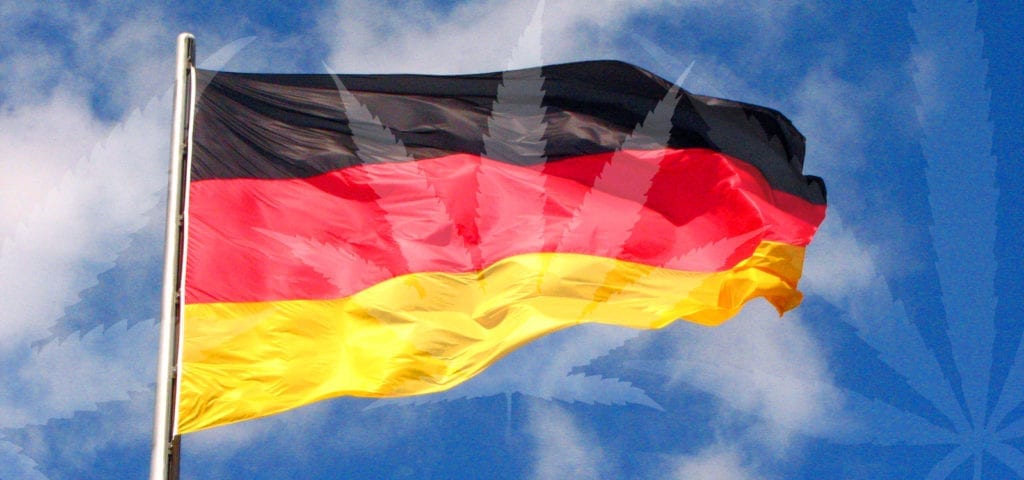On January 19, the German parliament unanimously legalized medicinal cannabis use, paving the way for patients with a doctor’s prescription to purchase cannabis products from pharmacies. Unlike America’s fractured medical cannabis system, German patients will be able to have their medicinal cannabis treatments covered by insurance, and access is not based on qualifying conditions – a physician writes a prescription, the patient brings that to a pharmacy, which dispenses.
Previous German law only allowed seriously ill patients with no other therapeutic alternative to access a very limited program and, currently, under that regime, only about 1,200 people out of Germany’s population of 80 million have been given the green light by a physician to use therapeutic cannabis – which, until the rule change, had to be imported.
Following the reforms, several Canadian companies have entered Germany’s nascent market. In July 2016, Tweed, Canada’s largest medicinal cannabis producer, received approval from both national governments to begin importing cannabis to Germany. In November, Canopy Growth – which counts Tweed among its brands – agreed to acquire MedCann GmbH Pharma and Nutraceuticals, a company that had successfully placed Tweed-branded medical cannabis products in German pharmacies.
More recently, Maricann (CSE:MARI), a licensed medical cannabis producer based in Langton, Ontario, secured US$32.2 million (C$42.5 million) in non-dilutive financing to expand their operation in Ebersbach, Germany. Maricann’s German arm was founded in December 2016.
Ben Ward, CEO of Maricann, said the decision to enter Germany was due to the nation’s “rational market” and “strong economy.” He calls the national reforms “the most significant federal legalization in the world” because as Germany moves forward, “the rest of the European Union usually follows” – a total population of 500 million.
“Germans have the propensity to use natural therapies, complementary therapies, that are herbal,” he explained in an interview with Ganjapreneur. “They have a strong tradition of using herbal medicines…and I decided it was a perfect opportunity, it was just a matter of how long we’d have to wait.” Ward said he and his team were “completely shocked” when the January decision was announced; unexpected but welcome news.
Under Germany‘s rules, only companies that have produced 50 kilograms (110.2 pounds) of cannabis in the last three years are considered for market entry. To enable companies with no prior cannabis experience to enter the space, the rules allow for companies who produce qualifying amounts of other medicinal herbs for consideration. In Canada, Maricann has served a base of nearly 8,000 patients. The German regime allows only for indoor grows, but they do not outline energy-use requirements.
In March, Germany was ranked 19th in the World Economic Forum’s Global Energy Performance Index, which “ranks the performance of countries’ energy systems, as well as looking at trends in the global energy transition” based on whether the economies provide “secure, affordable, and sustainable energy.” (Comparatively, the U.S. and Canada rank 52 and 32, respectively.) This means it was important to the Maricann team to design an “efficient” facility, partly to adapt to German culture, and partly because it makes economic sense.
“For us to be profitable, we have to be as efficient as possible with both energy and water,” Ward said, explaining that they use LED instead of sodium lights and recycle water, and air and cooling. “To be efficient you have to operate with a green mandate.”
The “main regulation,” Ward says, is product safety. Currently, patients do not have legal access to edibles and concentrates but as the program progresses that is likely to change. Testing requirements are also in place, with regulators capping the allowable THC content in products at 22 percent and dividing cannabis products into three categories based on THC and CBD content.
Patient counts in Germany are estimated to reach between 800,000 to 1.6 million, Ward said, and even if counts reach the higher figure the company is prepared to serve the whole market. However, until they gain final approval for THC products, the company will focus on cultivating female cannabis plants with .2 percent THC or less and “extracting cannabinoids such as CBD, CBG, and CBN, in addition to the natural terpenes and flavonoids to assist with absorption.”
One of the issues for Maricann was finding German talent, because without a robust medical cannabis infrastructure, few nationals have experience in the industry, and there is still a stigma associated with medical cannabis.
“It’s been more of a challenge to find people because not everybody is so excited about joining in the cannabis world there because they haven’t had the groundswell movement like the U.S. and Canada,” Ward said, outlining that the German company is comprised of people with backgrounds in insurance, law, medicine, and politics. “People we can have a conversation with to destigmatize, understand, and move ahead.”
As the most populous nation in Europe, German legalization of medical cannabis marks “a massive windfall and change” for the medical cannabis industry, Ward said, adding that many operators might have missed the “groundbreaking” nature of January’s announcement – a nation with an established, universal, healthcare system has a federally-approved medical cannabis program.
Presently, Maricann is working their way through the wholesale licensing process, which will allow them to import and distribute products from Canada. Ward indicated that they are already moving ahead with non-THC cannabis plants to provide other cannabinoid-based products and “could have product ready” from their German operation by February, 2018.
“It’s imminent,” he said. “It’s close.”
Get daily cannabis business news updates. Subscribe
End
